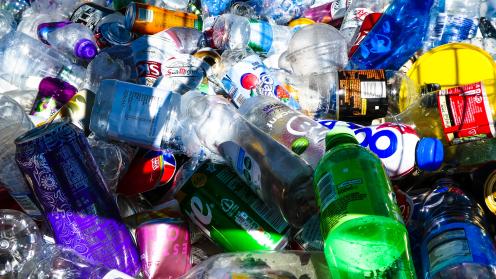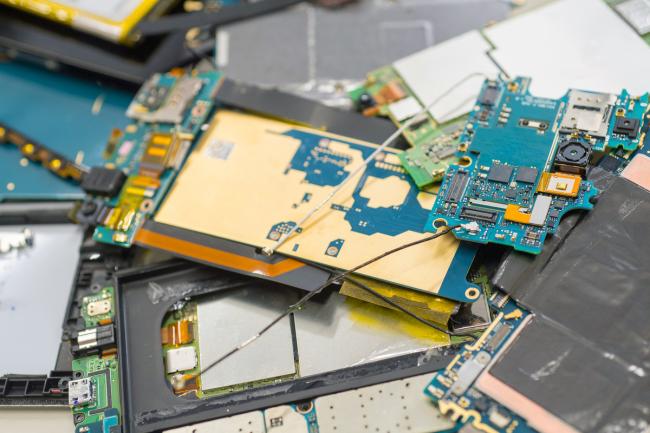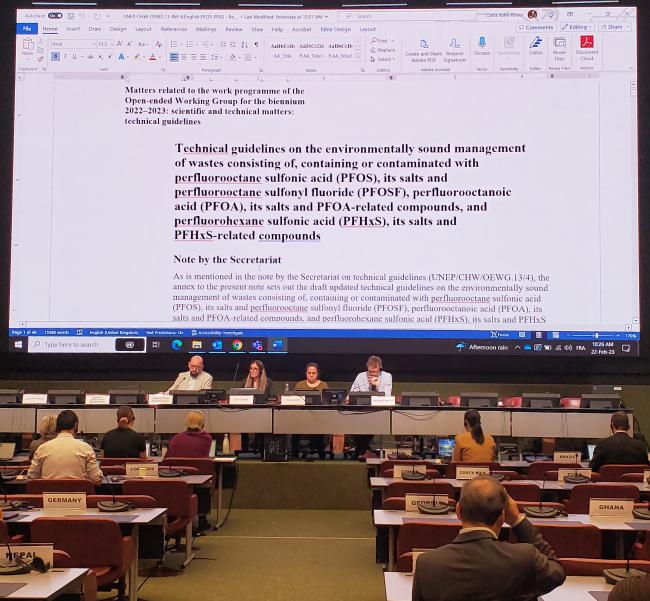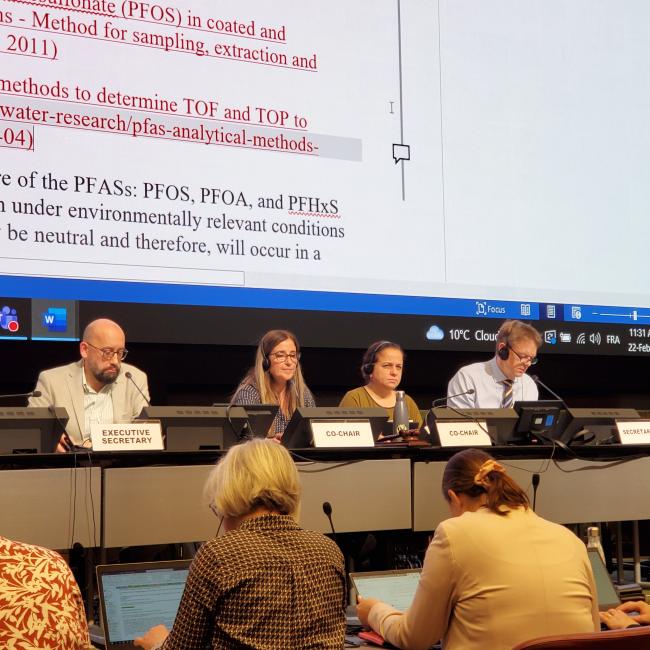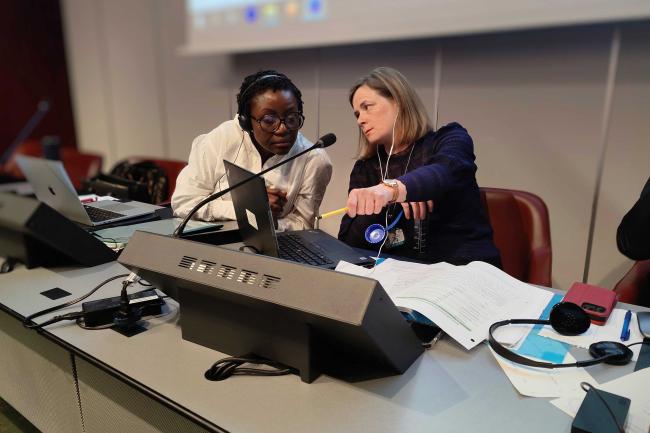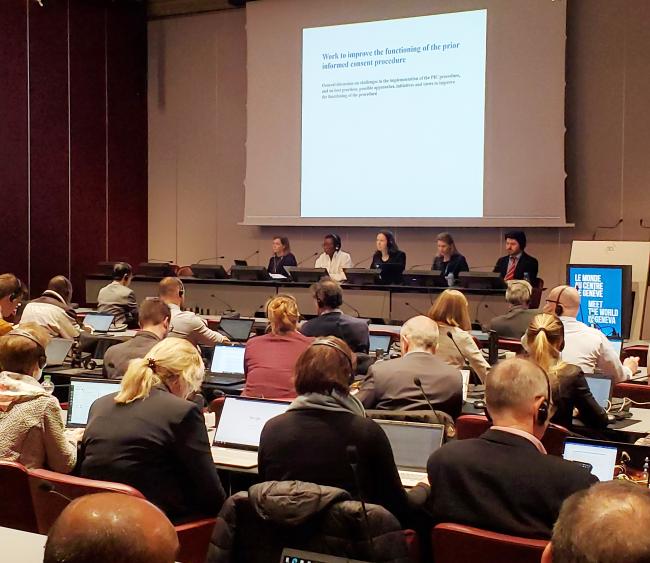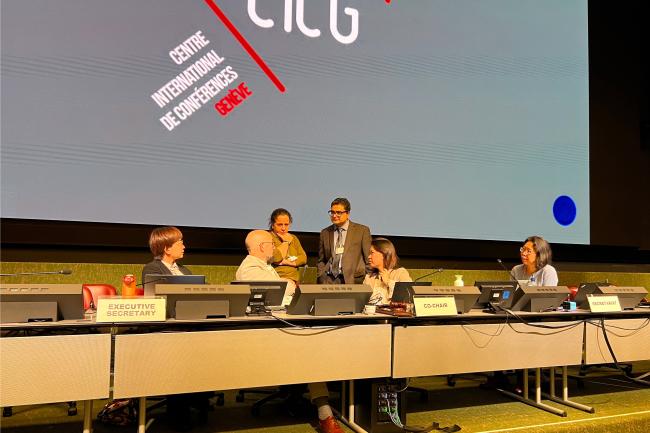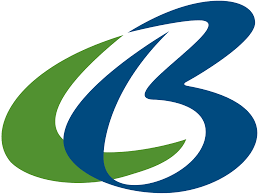The 13th meeting of the Open-ended Working Group (OEWG-13) of the Basel Convention on the Control of Transboundary Movements of Hazardous Wastes worked throughout the day in contact groups, addressing:
- an update of technical guidelines on the environmentally sound management (ESM) of wastes containing, consisting or contaminated with persistent organic pollutants (POPs);
- an update of the technical guidelines on ESM of plastic wastes;
- findings and recommendations to improve, as appropriate, the strategic framework for the implementation of the Basel Convention; and
- improvement of the Convention’s prior informed consent (PIC) procedure.
On POPs wastes, the focus was on updating the specific technical guidelines on ESM of wastes consisting of, containing or contaminated with perfluorooctane sulfonic acid (PFOS), its salts and perfluorooctane sulfonyl fluoride (PFOSF) and perfluorooctanoic acid (PFOA), its salts and PFOA-related compounds, to include perfluorohexane sulfonic acid (PFHxS), its salts and PFHxS-related compounds. The Technical Matters Contact Group reviewed the draft update’s structure, terminology, descriptions of waste types and production processes, scientific references, and paragraphs regarding sampling, analysis and monitoring.
Regarding plastic wastes, the Technical Matters Contact Group focused on two bracketed sections relating to definitions of biodegradability, and chemical recycling of plastics. The group reached agreement on classification of polymers, including how to reference bio-based, biodegradable and compostable plastics. However, despite efforts to clean up language on chemical recycling, most paragraphs remained bracketed due to overall concern about the sustainability of current chemical recycling processes. An informal working group was tasked with exploring possible avenues for achieving consensus.
On the strategic framework, the Strategic Matters Contact Group embarked on a paragraph-by-paragraph revision of the draft findings and recommendations developed by Canada in collaboration with a small intersessional working group (SIWG). Participants discussed, among other things:
- aligning the timing of the next framework with cycles of the Conference of the Parties (COPs);
- the inclusion of SMART (Specific, Measurable, Achievable, Relevant and Time-bound) indicators to measure progress;
- challenges in using and including specific terminology;
- the role of Basel Convention regional centers; and
- linkages with other conventions and processes.
As for improving the PIC procedure, the Strategic Matters Contact Group canvased views on challenges encountered in the current operation of the procedure, and best practices, possible approaches and initiatives to improve its functioning. The group discussed a draft recommendation to COP 16 on intersessional work, focusing on whether it should be through an expert working group or a SIWG.
To receive free coverage of global environmental events delivered to your inbox, subscribe to the ENB Update newsletter.
All ENB photos are free to use with attribution, citing the photographer for the specific image used.
